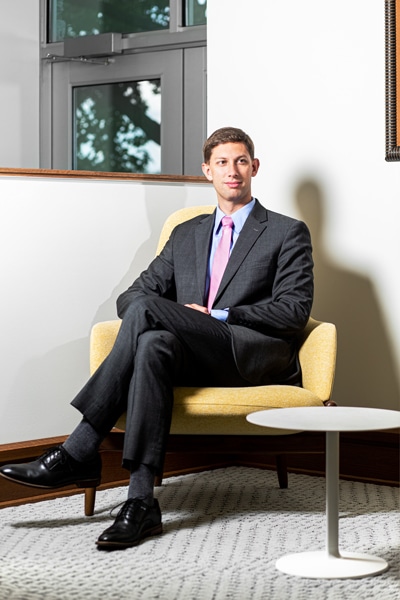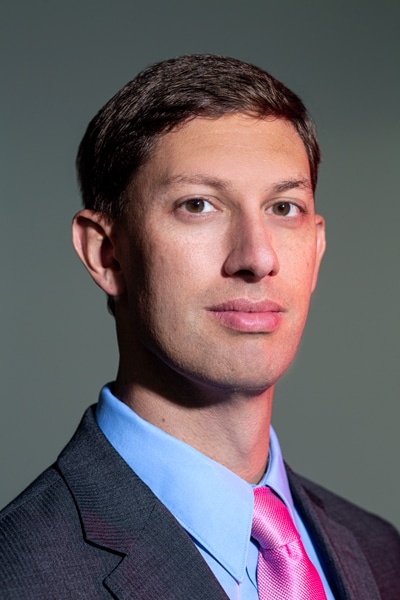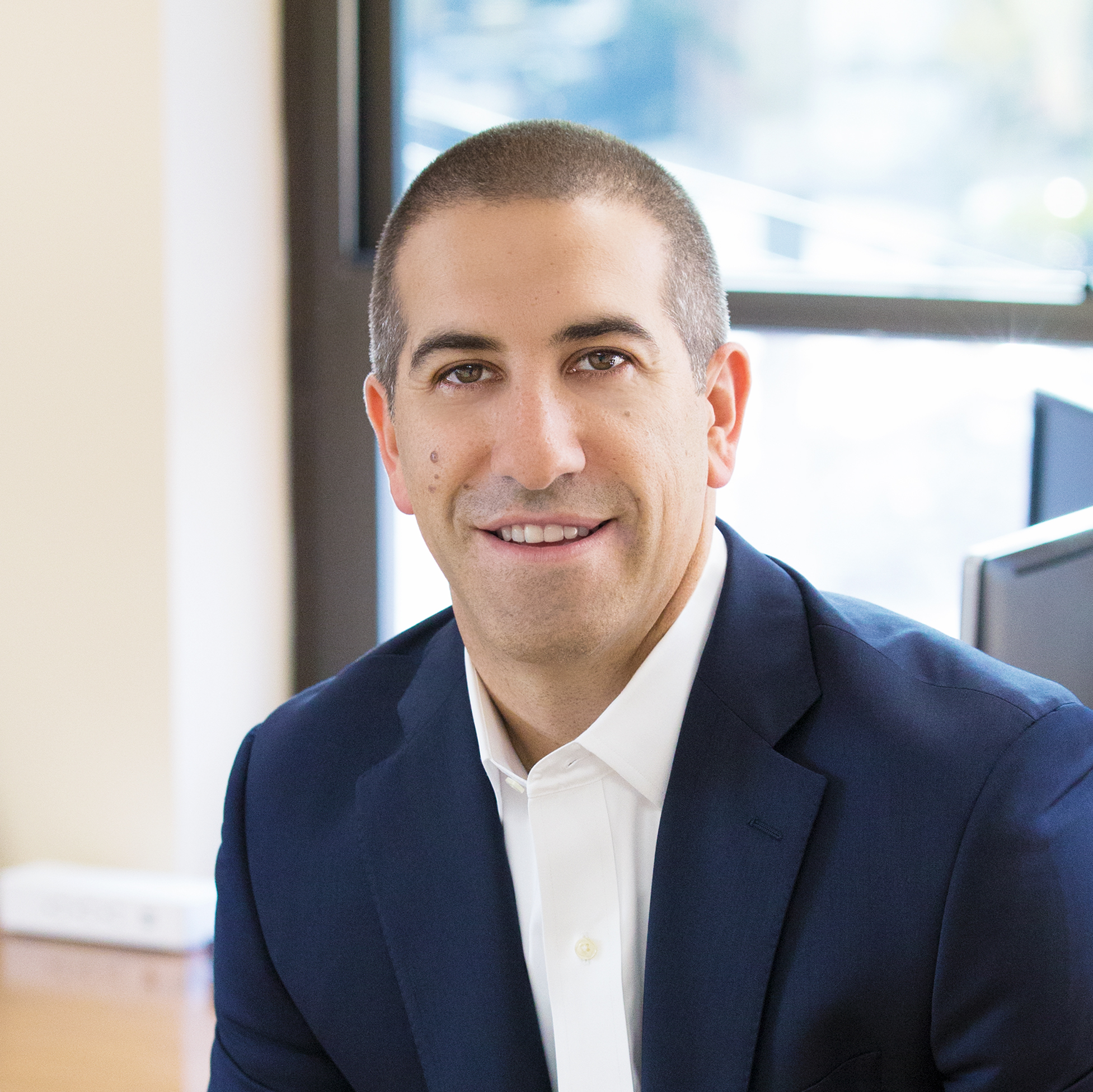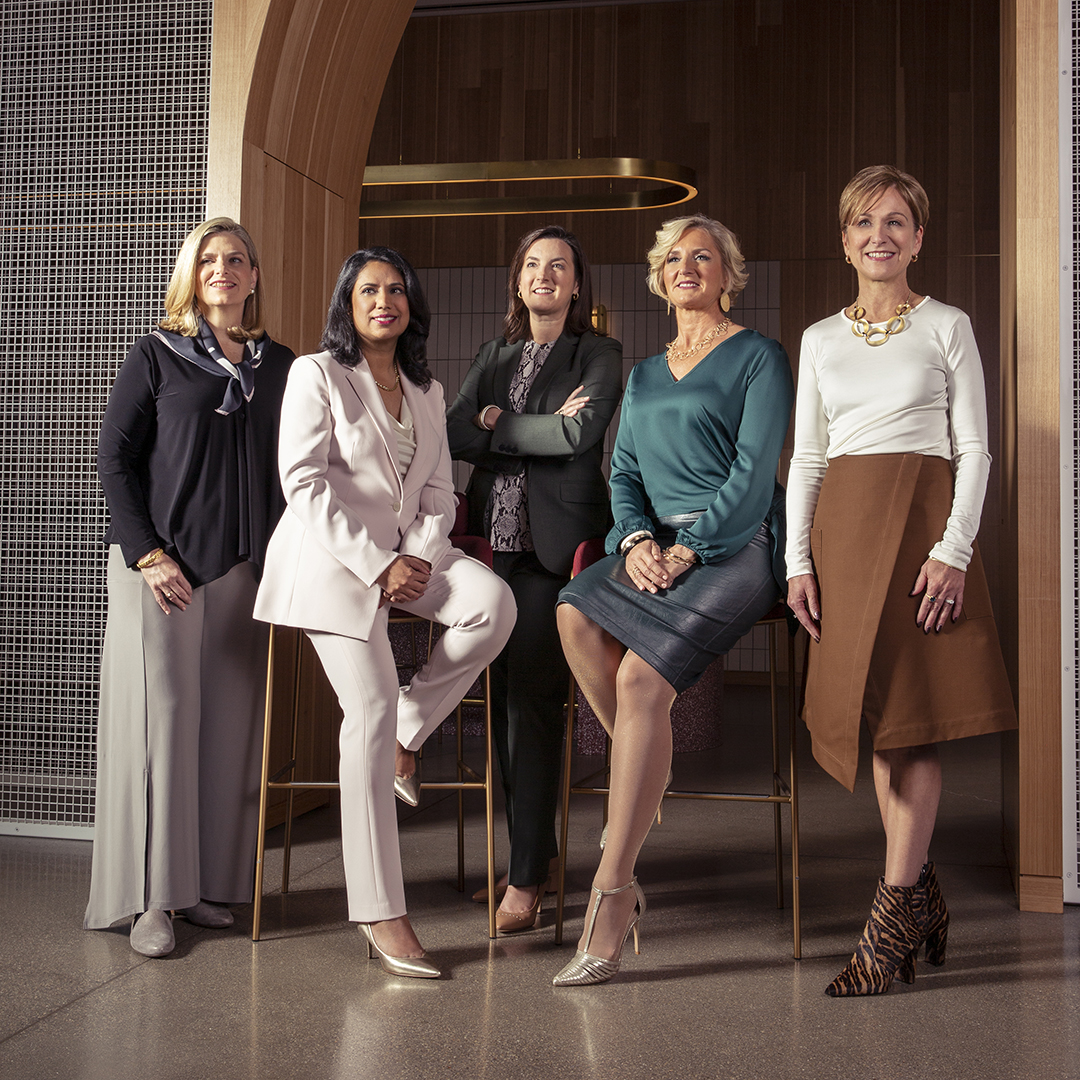It’s fairly easy to see that James Turoff is motivated to become a general counsel. The vice president and deputy general counsel at the Hershey Company has built out what he calls his “corporate generalist” expertise in his sixteen-year legal career, making important strategic stops along the way, all in service of someday taking on a large-scale GC role. Hungry to take on any opportunity, Turoff helps the chocolate and snack company pave the way for the future, embracing the power of artificial intelligence (AI), technological partnerships, and the possibilities of serving the business better and becoming a better lawyer.
Hershey’s has allowed Turoff to dive deep into an amazing breadth and depth of experience. “I’ve done just about everything a person can do in the law department at Hershey,” Turoff says. “This was largely because I was open to possibilities and was willing to raise my hand.”

The recent diversification of the most famous name in chocolate is particularly important to Turoff’s own development as a lawyer. The largest acquisition in company history, the 2017 $1.6 billion purchase of Amplify Snack Brands (whose brands include SkinnyPop popcorn, Pacqui tortilla chips, and Oatmega protein bars), didn’t just go down on Turoff’s watch; it practically fell into his lap. “M&A isn’t what I was brought here for, but we had a few people transition when the deal came around, and I volunteered,” Turoff says. “I think I was the only one left standing with the necessary legal M&A experience.”
It was the first major portfolio expansion in the push by company CEO Michelle Buck for Hershey to become more than just a confectionary company, and, in her words, transform into an innovative snacking powerhouse that “will enable us to bring scale and category management capabilities to a key subsegment of the warehouse snack aisle.” Turoff was also deeply entrenched in the $397 million acquisition of Pirate Brands in 2018 as well as the $420 million acquisition of One Brands in 2019. But M&A isn’t the end-all for Turoff. It’s just the beginning.
The way the DGC rolled up his sleeves to take on M&A work is the same way Turoff wound up spending two years traveling back and forth from China, mentoring a traditionally trained Chinese legal department to operate with more Western-styled leadership during an acquisition. Along with overseeing the day-to-day legal operations, Turoff was also part of the strategic leadership team advising on how to bring two companies—and two cultures—together to run successfully as a business.
“It happened because I was open to it,” Turoff says. And the same philosophy goes for Turoff’s experience in labor and employment, litigation, enterprise risk management, and commercial business advising.
In addition to advancing his skill set in these ways, Turoff greatly cherishes the experience that many lawyers never have. With the retirement of general counsel Leslie Turner in February of 2018, Turoff and another attorney essentially split GC duty for nine months during the search for a new legal head.

After the new GC came aboard, the legal department was flattened out for another six months while the new hire got his sea legs, which meant everyone was reporting to Turoff. For a lawyer hoping to one day be a GC, there really is no better preparation. “I don’t think many folks in the DGC role have had a GC-level experience for almost a year,” Turoff says. “I was very fortunate.”
When it comes to the future of legal, Turoff has obviously spent time thinking about the inevitability and advantages of change. “I am getting more and more aligned to the notion that the way legal departments provide services to their business clients needs to change fundamentally,” Turoff says. “How do we partner with technology providers, leverage tools, and better communicate to more effectively provide business advice and capture that advice in a way where we’re sharing the knowledge?”
Turoff says technological partnerships may be the key to changing the way those services are provided. Foremost, Hershey spent extensive time overhauling its contract model. “We historically spent inordinate amounts of time reviewing every contract without a well-developed matrix of how we should be spending our time,” Turoff says. While an in-house SharePoint site has helped ease some of the burden when it comes to contract templates for high-volume requests, the eventual hope is that a third-party contract provider firm can serve as the intake for contracts and as the frontline for any type of negotiation that needs to be made.
Further down the line, Turoff sees serious potential in AI’s ability to do the work. “I really think AI is the future of contracts and a lot of other commodity areas in the legal department,” Turoff says. The pace of change requires the DGC to always be learning, but he says it’s one of the best parts of the job.
“I’m at a point in my career where the journey of where we’re going and what’s happening in broader regulatory and political environments—and how we bridge those two—offers me a lot more excitement than reviewing contracts,” Turoff says. Of course, he acknowledges that those contracts are important, but Turoff has been working with a bigger goal since early on his career—and there’s no doubt he’ll be there soon.
Wilmer Hale:
“James is an exceptional lawyer, strategic thinker, and colleague. He is dedicated and passionate about helping The Hershey Company succeed, and he is a pleasure to work with.”
—Joel Green, Partner


